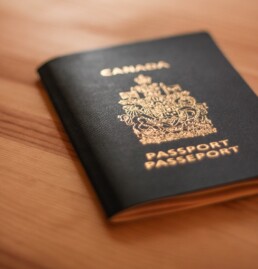More States Are Adopting ‘Cash for Passports’ Programs That Grant Citizenship to Wealthy Investors, Giving Them Visa-Free Access to Many Countries and Causing Concerns About Adequate Security Screenings
Wealthy investors who wish to gain citizenship in another country are now able to do so by agreeing to invest a large sum of capital in that country. The investment gives them access to passports from participating states, facilitating visa-free travel to many countries, including those in the European Union.
The ‘citizenship by investment’ industry is expanding on a global scale, with more and more countries designing immigration programs that award citizenship to wealthy investors from countries such as Russia, China, and the Middle East. An estimated 25,000 people buy a second citizenship each year. The programs allow these investors to surpass visa requirements that they would otherwise have to meet with their original citizenships, allowing them to travel through borders of many states more easily.
The investor immigration programs were designed to boost the economies of developing countries through investment. However, critics argue that the ‘cash for passports’ industry is posing significant risks to safety and national security across the globe. Many participating countries are reportedly failing to employ adequate procedures to screen potential investors or to investigate the originating sources of the invested capital. While countries that rely on investor immigration programs assure of rigorous screening procedures, the governments of Canada, United States, and the European Union nonetheless warn that these programs threaten national security by providing visa-free access to over 100 countries. These concerns have led the Canadian government to recently impose a visa requirement for foreign nationals entering the country with a passport from Antigua and Barbuda. The requirement was also imposed on St. Kitts and Nevis a few years prior.
Similar concerns about security and fraud led the Canadian government to shut down its own investment program in 2014. Prior to that, wealthy investors could qualify for permanent residence in Canada by demonstrating a net worth of $1.6 million and agreeing to invest $800,000 in Canada. The federal government would then return the investment, interest-free, after five years.
Although the Canadian investor program remains closed, Canada continues to offer numerous immigration opportunities for entrepreneurs and businesspeople, while at the same time preserving the safety and security of Canadian residents. For more information on Canada’s current business immigration programs, contact a corporate immigration law firm.
Share this article
Arghavan Gerami
Arghavan Gerami is the Founder and Senior Counsel at Gerami Law Professional Corporation ('PC'), a full-service immigration law firm in Ottawa, Ontario. Since 2011, Ms. Gerami has focused her practice on immigration and refugee litigation. Prior to that, Ms. Gerami worked at the Ministry of Attorney General and the Department of Justice and had the privilege of serving the Honourable Mr. Justice M. Evans at the Federal Court of Appeal on immigration and administrative law appeals. Ms. Gerami contributes to the Immigration Law Section of the Canadian Bar Association, the Canadian Association of Refugee Lawyers, and the United Nations High Commissioner for Refugees. Ms. Gerami has also published numerous journal articles and presented at various immigration and refugee law conferences and events across Canada.

